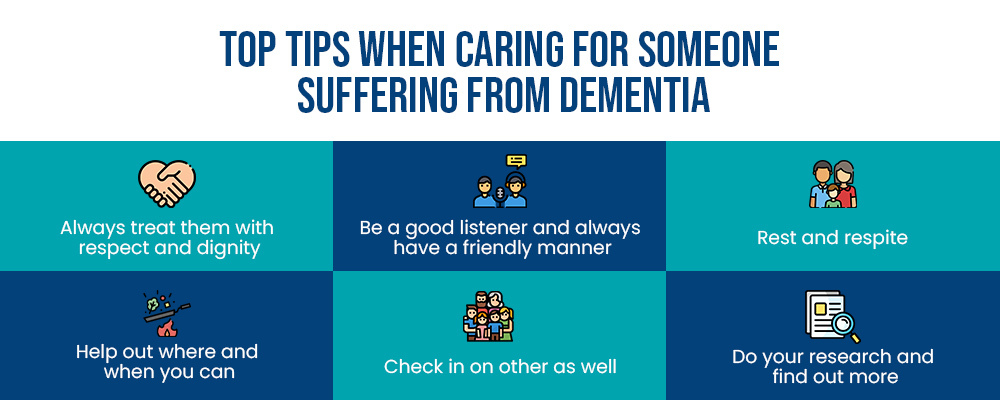Last Updated on December 13, 2023
Introduction to Dementia
Dementia is an umbrella term used to describe a wide array of symptoms associated with cognitive impairment. It is often misinterpreted and a source of confusion for people. Dementia is a general term used to describe memory loss, the inability to perform daily tasks and make decisions, impacting the quality of life. Agitation (an emotional state characterized by feelings of nervousness, tension, and rapid motions) is therefore commonly observed in people with dementia. To make it simpler to understand, we have explained in this article dementia, agitation in the elderly, and agitated behavior associated with dementia.
Living with Dementia Associated Agitation
Dementia can be frustrating for anyone experiencing it. It takes away so much from the affected individual and leaves them with agitation, and feelings of restlessness. Agitation is mainly a result of the physical changes in the brain that cause a sudden change of behavior.
Additionally, dementia patients are often seen distressed and agitated towards the end of the day, also called “sundowning” which causes restlessness, and agitation along with hallucinations and delusions. It is not a disease but an effect of dementia.
Agitated Behavior in Dementia
Agitated behavior refers to a state of emotional unrest, uneasiness, and irritation or excitement. It is characterized by unusual behavior, such as pacing, fidgeting, and raised voices. Diagnosing agitated behavior can be difficult as it may be a cause of an underlying medical condition such as dementia. In addition, taking care of a person with agitated behavior due to dementia can be challenging. It is crucial to understand the underlying cause so that they can be treated in the right way with love and compassion.
Agitation in Elderly
Agitation in the elderly is often associated with certain medical conditions and mental illnesses. It is also common in individuals who misuse their antipsychotic drugs. Understanding agitation in the elderly requires a comprehensive approach. The goal should be to provide a supportive environment and quality care as per their needs.
How to Calm Agitated Dementia Patients?
Taking care of agitated dementia patients can be extremely rewarding but it is a challenge in itself. People who are caregivers of dementia patients tend to lose their mental peace over time as it is not an easy job. It is therefore essential to take care of your mental health while calming dementia patients. Caregivers often look up answers to the question, “How to calm agitated dementia patients?”. It all depends on the stage of dementia.
Some of the action techniques that can help in calming dementia patients are:
Mimic their actions:
To make them feel heard, it is suggested that we mimic their actions, so they know it is okay and their feelings are valid. This can help you in figuring out what’s bothering them.
Hand under-hand method:
Giving them your hand can be a comforting gesture to them. When a person is in distress, he/she needs comfort and help to relax. Standing on their dominant side and offering assistance can be helpful.
Take long deep breaths focusing on exhaling:
Taking deep breaths helps in relaxing the ribcage and allows a person to take in more oxygen, refreshing their mind and soul.
Other than this, some other points to keep in mind while calming dementia patients:
Stick to a routine:
Making a routine for them and sticking to it makes them feel comfortable and more independent. It is therefore suggested to set up time slots for each activity for them to enjoy.
Make the environment conducive to them:
Decluttering and simplifying the environment around them helps them think straight and allows them to differentiate between different objects and colors.
Physical activity:
With dementia, people lose their sense of independence which affects them significantly. It is essential to keep them engaged in physical activities for them to feel fresh and productive.
How to Calm Dementia Patients at Night?
As we have discussed above the sundown syndrome, which is also called late-day confusion, presents with agitation, confusion, and restlessness as the day passes, and results in difficulty sleeping at night.
There are a few techniques that can be used to calm dementia patients at night:
Calm environment:
To calm agitated behavior in elderly at night it is important to make sure that their surroundings are as comfortable as possible. Dim lights, dark curtains, and a noise-proof environment promote a good night’s sleep.
Limiting the use of stimulants:
Use of alcohol, caffeine, and other such substances should be discouraged due to their stimulating properties, especially after noon, as they tend to disrupt the sleep cycle.
Establishing a routine:
Try to make morning and nighttime routines so that they know what time it is and are accustomed to doing the planned activities.
Keep them involved in physical activity throughout the day:
Keeping them busy during the daytime can help them sleep at night peacefully. Moreover, daylight exposure is good for overall health.
Keep hydration levels under control:
Drinking enough water daily is essential, not only for overall wellness but also for brain activity. Adequate intake of water daily can help prevent confusion and other illnesses.
A Word from Revive
Revive Research Institute has conducted multiple Alzheimer’s disease clinical trials focusing on helping both the patients and caregivers to be able to manage the symptoms and live a better life. With our team of expert neurologists, we aim to help people navigate their medical conditions and make healthcare accessible to everyone.
Outlook
Agitated behavior in Alzheimer’s disease is common and so is agitation in the elderly. The caregivers need to understand the condition, specifically the state of agitation, so that they can assist dementia patients accordingly. Moreover, the caregivers often forget themselves while caring for dementia patients which makes them feel burn-out too quickly. They must take their time off and unwind to provide better care for their loved ones.





